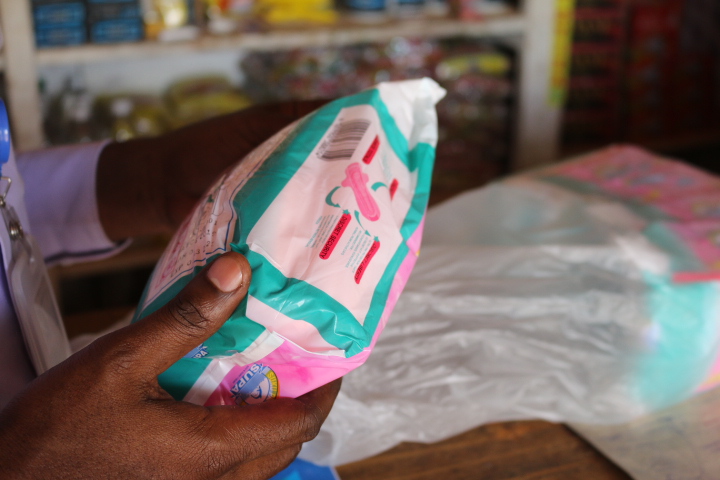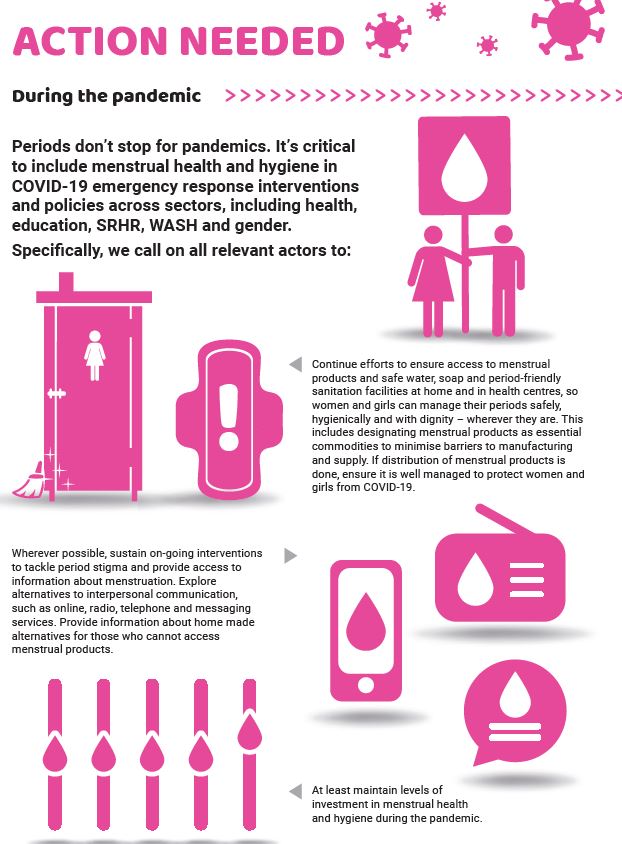Menstrual Hygiene Day 2020: Periods don’t stop for pandemics
- 2020-05-28 19:47:39

May 28 is universally recognized as the Menstrual Hygiene Day (MH Day), which aims to break persisting taboos around menstruation, raise awareness about the importance of menstrual hygiene management (MHM) for women and adolescent girls, and engage decision-makers in raising the political priority of MHM.
In the Rwandan community , like in many other communities , talking about Menstruation is shied away by many, and when it is done it is addressed in a very brief way which leaves young girls with much more confusions and can result in auto-stigma.
The government of Rwanda in collaboration with its partners have made significant steps in promoting menstrual health : in 2010 , Sustainable Health Enterprises (SHE) champions, including Rwandan ministers and parliamentarians led the “Breaking the Silence around Menstruation” campaign. In partnership with the ministries of gender, education and health, the campaign secured the mandate that schools include girls’ rooms , and also a manual for training of trainers (TOT) in MHM and an MHM teacher/student manual have been approved by the Rwandan Education Board.

Photo: Pads are essential for menstrual Hygiene yet their accessibility and availability is not assured for all girls and women at all times
In December 2019, the government of Rwanda added sanitary pads to the list of goods that are VAT exempted in a bid to ease their affordability.
Despite these efforts, there is still a big gap in message penetration at community level, most young girls are left to discover periods on their first menses. Parents are urged to break their silence over menstruation and reproductive health so that their daughters are informed and prepared before they get their first period.
MENSTRUAL HEALTH IN THE COVID-19 TIMES
The COVID-19 has affected all aspects of life. When it comes to menstrual health , the effects of COVID-19 become even more alarming: there has been Disruption in access to information and products of menstruation for young girls as Schools are closed , community centers supply schemes (e.g. free distribution of menstrual products in school)s and other places where women and girls can typically access critical information about menstruation are not as accessible as in normal times.
The Lockdown associated to the COVID-19 is also more prone to intensifying the impact of household level taboos and stigmas on women and girls and make it more difficult to manage menstruation, without shame and discomfort in often confined spaces.
One of the few positive of the COVID-19 lockdown is the gradual increase of time that parents and children spend at home, this is an unparalleled chance for parents to bond with their children and have throughout discussions with children on their life.
It is important for parents to open up to their children and have normal conversations (not speeches or lectures) with their children. This will help the parents getting the perspective of their children on this issues , hence help them to break the rumors , misinformation that the children encounter in their day to day life through discussions with their age-mates of form online sources.
